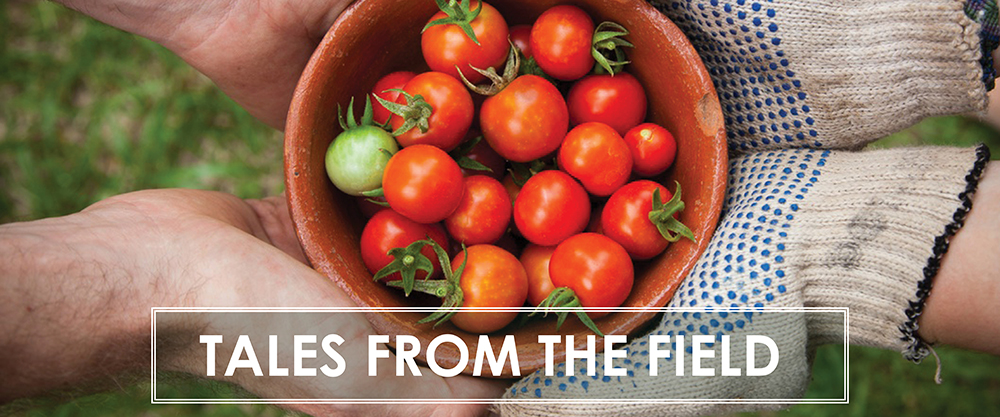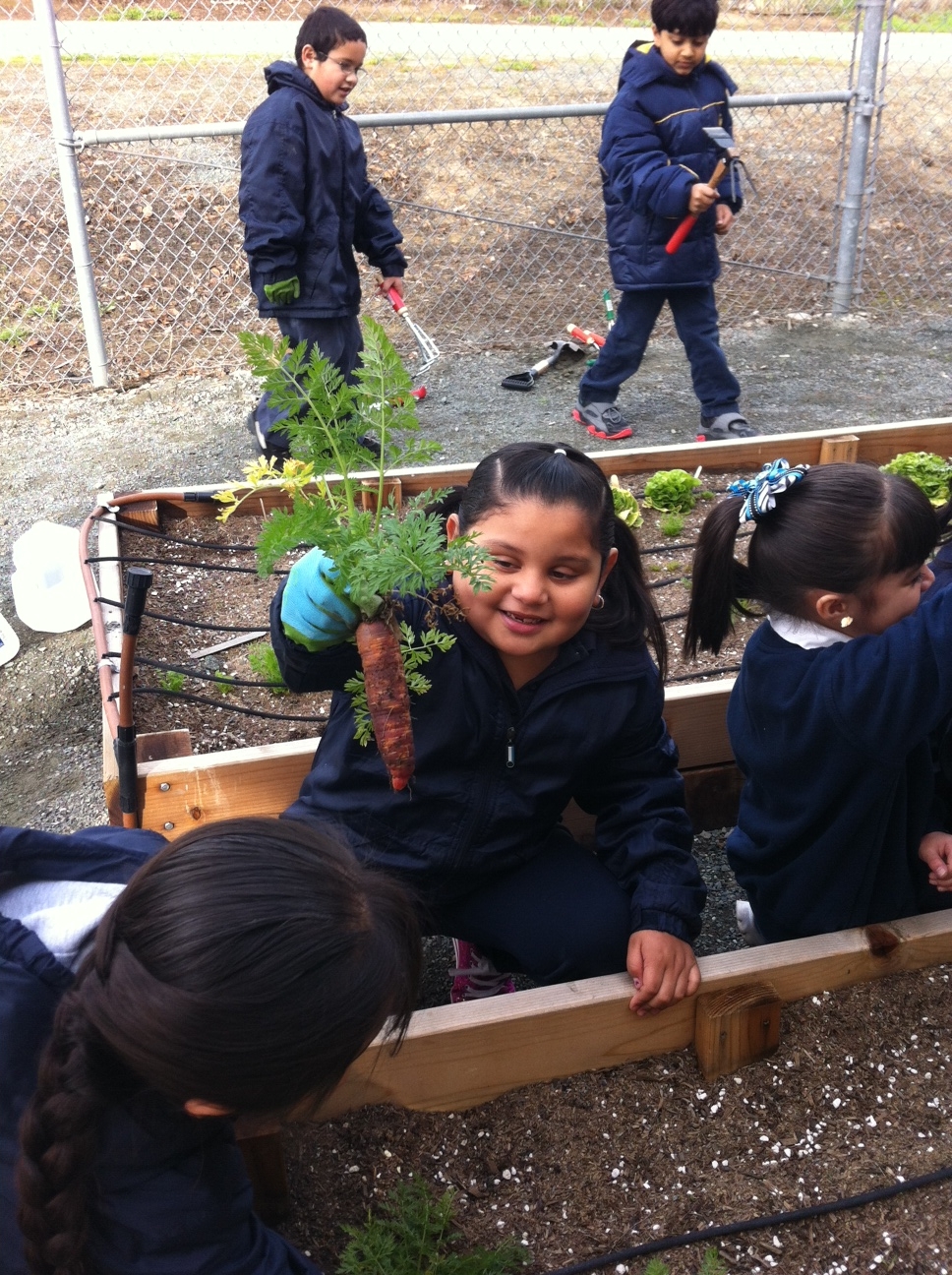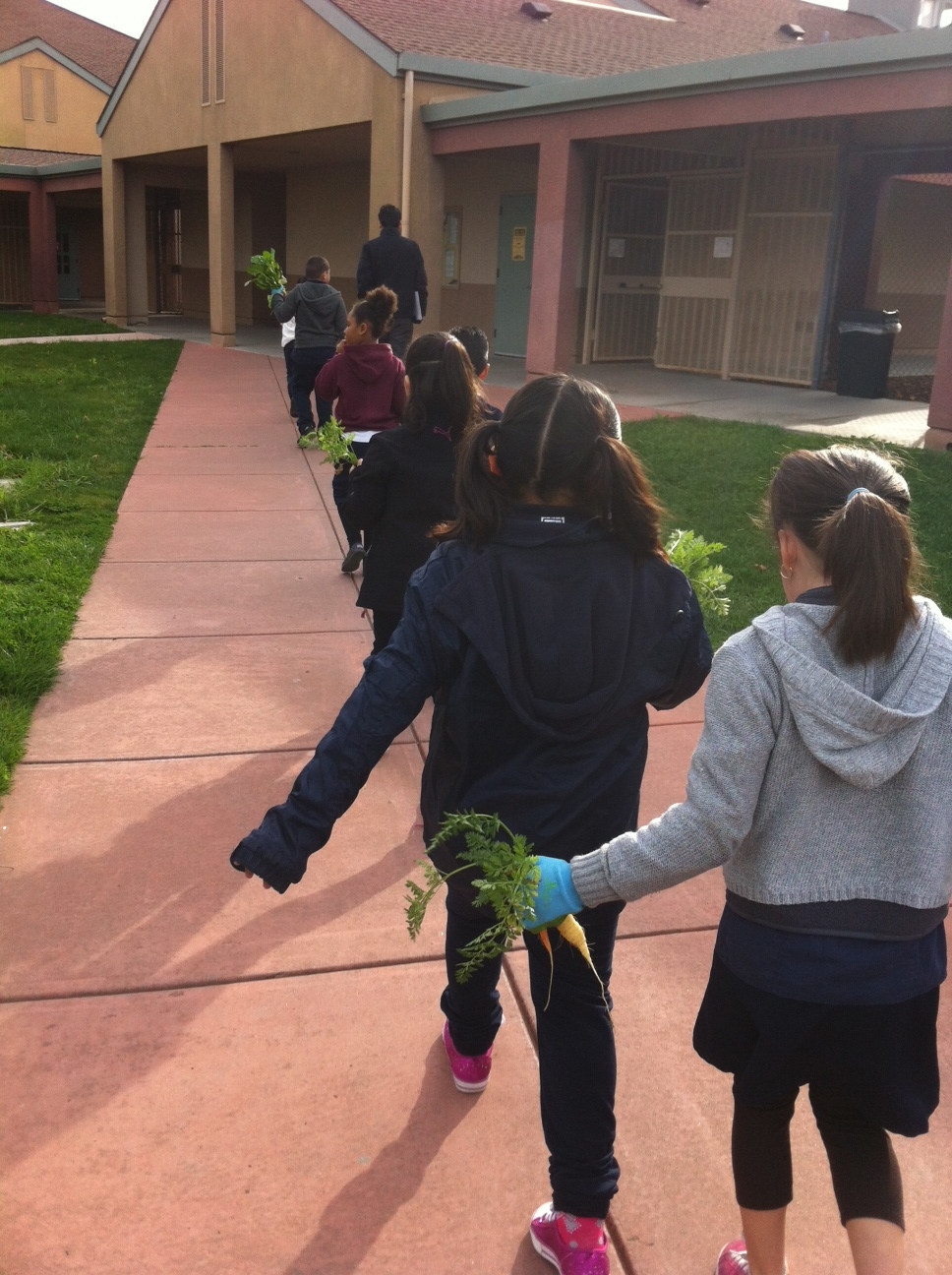By Catherine Hallet, Dietetic Intern, Farm to Fork
Farmers’ market incentive programs, such as Market Match in California and Double Up Food Bucks in Michigan, help low-income consumers access fresh fruits and vegetables at a reasonable cost. While each program varies slightly, they offer individuals extra money to purchase produce from local farmers when they utilize their SNAP benefits at farmers’ markets. For example, in California, Market Match provides “customers an extra $5 when they spend at least $10 on their CalFresh cards”(1). Market Match and other incentive programs provide a “win-win” for the community – not only can individuals receive more produce for their dollar, they stimulate the economy and support their local farmers.
Despite only being introduced a couple years ago, farmers’ market incentive programs have been quite successful. According to Market Match, “CalFresh redemption at local farmers’ markets [has increased] by over 650%”. Furthermore, CalFresh participants reported an increase in fruit and vegetable intake (1). In Michigan, not only did produce consumption increase, “83% of farmers say they make more money” (2,3). With its quick success, farmers’ market incentive programs show promise as a possible method for communities to promote access and consumption of fresh produce. Congress has recognized this potential and allocated up to $20 million to support such programs in the 2014 Farm Bill.
140 Farmers’ Markets in California participated in the Market Match program in 2013 (4). Check out some of the California farmers’ markets that offer Market Match here:http://www.pcfma.com/pcfma_marketmatchdates.php.
For information on other Farmers’ Market Incentive programs for low-income Californians, check out the Seniors Farmers’ Market Nutrition Program (administered by CDFA) and the WIC Farmers’ Market Nutrition Program (administered by CDPH).
Works Cited
(1) Pacific Coast Farmers’ Market Association.” Pacific Coast Farmers’ Market Association. N.p., n.d. Web. 07 Feb. 2014. <http://pcfma.com/pcfma_marketmatch.php>.
(2) Double Up Food Bucks. Healthy Food Incentives Work. N.p.: Double Up Food Bucks, n.d. Home. Web. 07 Feb. 2014. <http://www.doubleupfoodbucks.org/sites/default/files/files/FFN_DUFB%20Eval%202012_OnePager.pdf>.
(3) Partners.” Home. N.p., n.d. Web. 07 Feb. 2014. <http://www.doubleupfoodbucks.org/partners>.
(4) The Ecology Center, http://ecologycenter.org/marketmatch/


